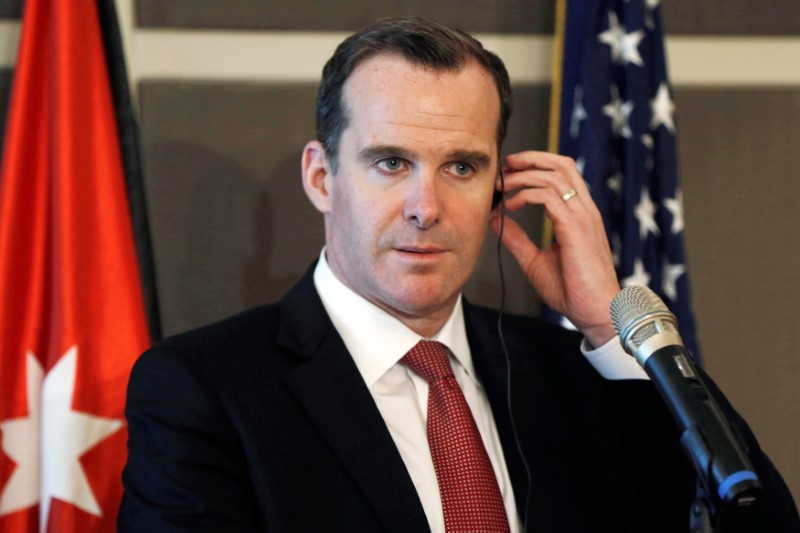By Yara Bayoumy
UNITED NATIONS (Reuters) - The U.S. envoy to the anti-Islamic State coalition said on Wednesday there would be "no tolerance" for sectarian torture and other abuses resulting from the planned offensive to recapture the group's de-facto Iraqi capital of Mosul.
Brett McGurk, speaking at a meeting on the sidelines of the annual U.N. gathering of world leaders, said the coalition was already taking steps to ensure there would be no repeat of the abuses seen in the wake of the recapture of Iraq's Falluja in June, when Shi'ite militias detained, abused and tortured scores of Sunni civilians. Improved screening of people fleeing the city was crucial, he said, to ensure that ordinary residents received assistance and did not face abuses.
"We must make sure the screening process in Mosul is done professionally with some third-party observers at the screening centres, that is what we hope to have," McGurk told the meeting.
With a population at one time as large as two million, mostly Sunni Mosul is the largest urban centre under the ultra-hardline militants' control. Its fall would mark their effective defeat in Iraq, according to Iraqi Prime Minister Haider al-Abadi.
Given the plethora of armed forces involved in fighting in Iraq, including the Kurdish peshmerga and the Popular Mobilization Forces, a government-affiliated coalition of mostly Iranian-backed Shi'ite Muslim militias, there are major concerns on how the offensive will play out and whether it could unleash further sectarian violence.
McGurk said Washington was working to make sure that many security forces used in Mosul would be those trained by the coalition and that the roles of different forces would be agreed on ahead of the operation, which could begin as soon as October.
"We need to plan for the worst-case scenario, we can hope for the best but plan for the worst. We do not know what Daesh will do in Mosul," he said, using the Arabic acronym for Islamic State.
Lise Grande, the U.N. humanitarian coordinator for Iraq, told the same meeting that Iraqi authorities had given reassurances that the screening of people leaving Mosul would be done by security forces and not by militias. Families would be transported either to an emergency camp or public buildings, she said.
Grande said Iraqi security forces would take steps to protect civilians, including alerting them of the upcoming campaign, identifying escape routes, and preparing safety cards.
The U.N. says the Mosul offensive risks triggering a major humanitarian crisis, with 1 million or more people potentially fleeing the city.
Stephen O'Brien, the U.N. aid chief, appealed to countries to speed up their aid donations ahead of the operation.
"To prepare for Mosul, partners launched a flash appeal for $284 million year in July this year ... and 48 percent of this funding, that's $136 million, has been received," he said.

"I cannot overstress the importance of receiving any outstanding pledges as soon as possible."